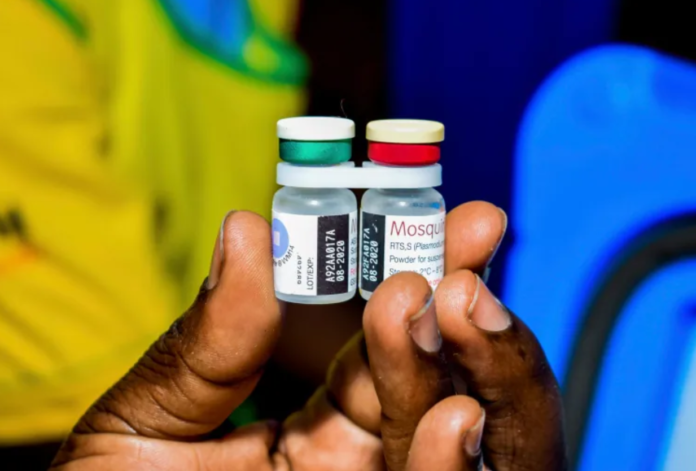The Ghana Health Service (GHS) has said the widespread approval of malaria vaccines for children under five will be a major game-changer in the fight to reduce the disease prevalence in the country.
The World Health Organisation (WHO) last Wednesday, recommended extensive use of the RTS, S/AS01 (RTS, S) malaria vaccine among children in sub-Saharan Africa and in other regions with moderate to high plasmodium falciparum, the most deadly malaria parasite for transmission, globally.
This was based on results from an ongoing pilot of the world’s first malaria vaccine in Ghana, Kenya, and Malawi which has reached more than 800,000 children since 2019.
Head of the National Malaria Control Programme (NMCP), Dr Keziah Malm, welcoming the news in an interview with the Ghanaian Times yesterday, said the potential impact of the malaria vaccines on children in the national fight against the disease cannot be underestimated.
“The pilot of the vaccines showed that we were able to reduce severe malaria among children by about 30 percent and if you are looking at Ghana where we are recording 10 million suspected cases annually, and last year, for instance, we had five million cases confirmed and recorded around 380,000 admissions due to malaria.
“The 30 percent in those admissions is a huge percentage reduction and we are hopeful that if and when the vaccines become available it will help bring the malaria burden down further and will help us in its elimination,” she said.
Dr Malm said, presently, 14 percent of children under five (14 out of every 100) had malaria parasite in their blood when tested and expressed hope that upscale of vaccines nationwide will bring the figure further down.
She said at least 230,000 children, in 33 districts in seven selected regions where the piloting of the vaccines was conducted had received three doses, by the end of July 2021 this year.
“They are expected to take four shots; the first three are done before the child is one year old and the fourth one is given in the second year of life. It was the second year that we had a lower coverage, mostly not all of the children were due for that dose and generally, any intervention that you have to give in the second year of life is quite difficult but once we are able to scale it up, we should be able to administer the full dose,” she stated.
Dr Malm indicated that the GHS, together with other relevant stakeholders and its partners, will draw a roadmap for a national rollout of the vaccines saying, “the WHO, GAVI, and Global Fund will have to now sit down and look at how logistics will be arranged, how the vaccines will be made available and how it will be financed among others.
“Then, the Ministry of Health and GHS will have to do its own internal arrangements to decide how we will do the scale-up,” she said.
The Programme Manager assured, however, of the safety and potency of the malaria vaccines to reduce severe illnesses and deaths related to malaria in under-five children and “parents and caregivers should bring their children to take the vaccine when it is finally rolled out so that, in addition to the use of mosquito nets and other interventions available, we can protect and prevent children from dying of malaria.”
Ghana is endemic for malaria which is perennial in all parts of the country with seasonal variations more pronounced in the north.
Of the nearly 600,000 annual deaths caused by malaria across the globe, about 90 percent of the cases are in sub-Saharan Africa with 83 percent of the figure being children under the age of five.
Malaria is a life-threatening disease caused by parasites transmitted through the bite of an infective female anopheles mosquito.
Symptoms include chills, fever, and sweating, usually occurring a few weeks after being bitten.

